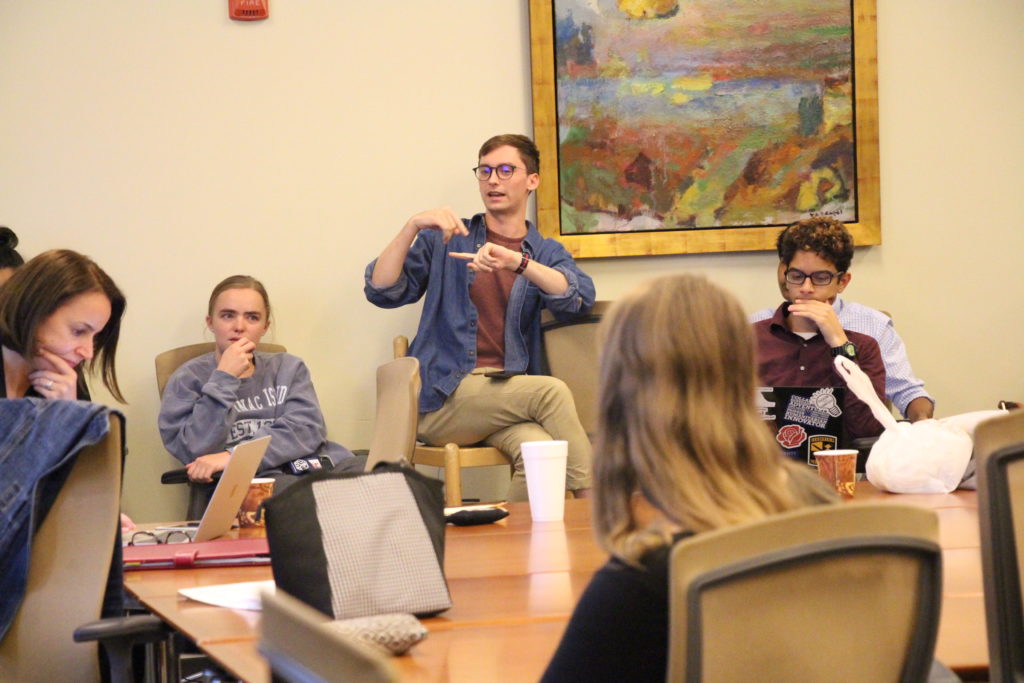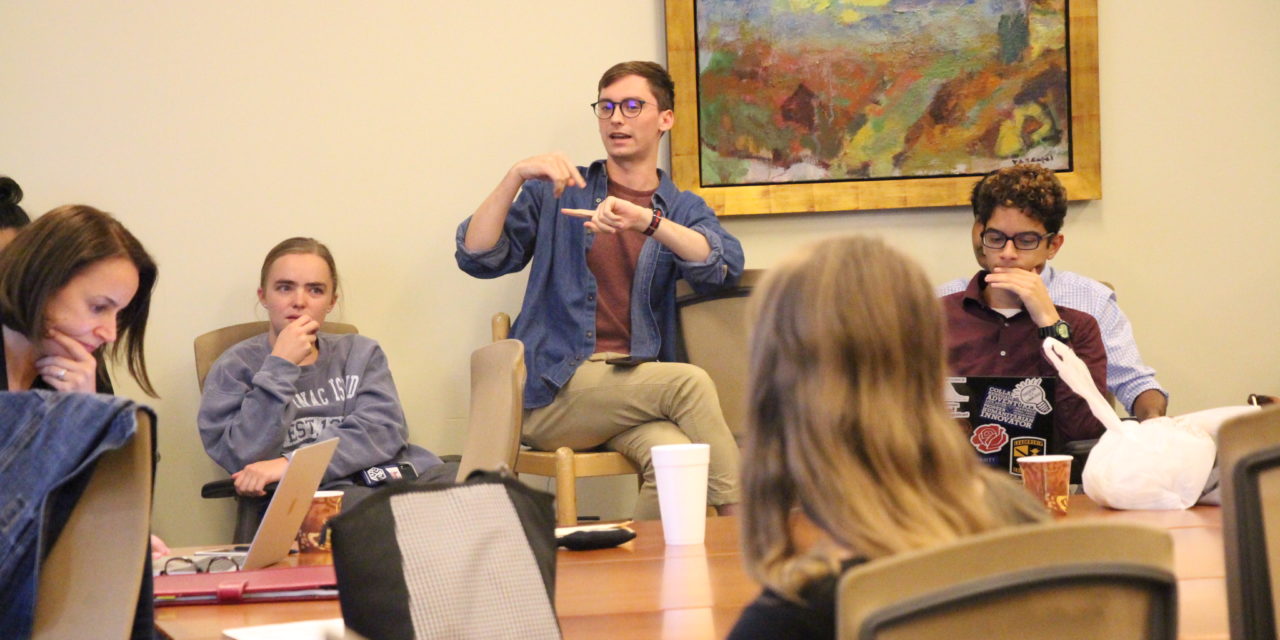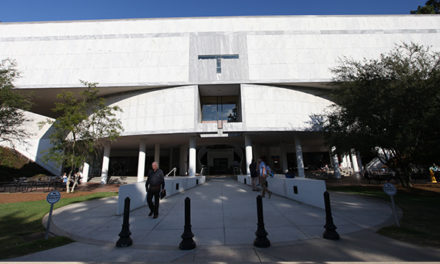
Noyonika Parulekar, Contributing
The 53rd legislature of Student Government Association (SGA) and the 4th legislature of Graduate Student Government Association (GSGA) convened for a joint meeting on Nov. 6 to discuss the creation of a marketplace platform and begin collaborations on various initiatives.
Associate Director of Student Governance Services (SGS) VonYetta Hunter discussed a potential collaboration with Modo Labs, a company that develops platforms for commercial activities at universities.
In her presentation, Hunter said that SGS and Student Involvement, Leadership and Transitions (SILT) are discussing the possibility of partnering with Modo Labs to create a platform to host on-campus commerce. Modo has developed apps that provide a range of services to both institutions of higher education and workplaces. The presentation aimed to gauge student leaders’ interests and concerns regarding such a platform.
“We are currently looking for a way that organizations can sell to students and students can sell to other students — a marketplace of sorts,” Hunter said.
Students would be able to pay using Eagle Dollars, credit or debit cards, according to Hunter. Through the platform, organizations would be able to collect money for fundraisers and sell tickets for events. Students interested in selling art to their peers would also be able to utilize the platform.
Hunter said that the platform would better hold student organizations financially accountable by allowing effective tracking of income and expenses. Currently, most student organizations use apps like Venmo, Zelle or Cash App to pay or receive money, which is technically not allowed according to SGS rules. SILT Director Lisa Loveall said that such apps have not proven conducive to student commerce. So far, however, student groups have been permitted to bend these rules due to a lack of alternatives to cash and checks.
“Per Emory and SGS, you should not be using Venmo … Cash App and Zelle, because we cannot monitor that,” Hunter said. “We don’t know what money is going to who and [to] whose personal private accounts.”
Members of SGA and GSGA raised concerns over whether students selling items to other students would be required to use the platform. Hunter said that the platform would not be compulsory and that students would be allowed to make their own arrangements if so desired. However, if implemented, student organizations would be required to use it.
Members of SGA and GSGA also expressed interest in the platform and many said that they thought it would be useful.
Both SGA and GSGA spoke about their aims to revise their respective governing documents. Members of the SGA legislature also discussed some of their initiatives such as providing shuttles to the airport and improving on-campus shuttles, improving on-campus food options, expanding the free tampons initiative and reviewing the free printing initiative. GSGA expressed desire to collaborate with SGA Sophomore Representative Rhea Kumar (22B), SGA Freshman Representative Joseph Banko (23C) and Diana Hernandez (23C) on their initiatives to increase on-campus dining options and provide shuttles to the airport during Thanksgiving, winter and spring breaks.
SGA President Ben Palmer (18Ox, 20C) also announced SGA’s plans to revise the Finance Code and to increase the Student Activity Fee by $15. GSGA Speaker Aisha Mahmood (20PH) said that GSGA would be increasing its SAF from $92 to $100.
Tanika Deuskar (22C) is from Bangalore, India. She intends to double major in Biology and Creative Writing. She loves jogging, listening to podcasts, and eating spicy food.






